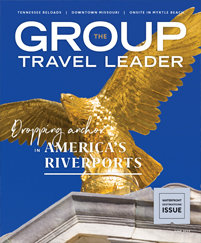“We’re not senior citizens — we’re recycled teenagers.”
An experienced group travel planner shared this gem with me at an event where I spoke this spring, and I found it so interesting that I decided I had to share it with you.
Much ink has been spilled profiling the psychological, behavioral and economic makeup of baby boomers, who represent the most powerful generation of consumers in the history of the United States. But this simple phrase, “recycled teenagers,” represents the ethos of the baby boomer better than perhaps anything else I have ever heard.
For group travel planners, understanding the differences between senior citizens and baby boomers can be the key to continued success in the new generation of tourism. Here are four important things to know about where boomers come from and how it impacts their view of travel.
1. Boomers have a different attitude.
As the “recycled teenagers” line suggests, most boomers are loathe to associate with the “senior citizen” label, although many are now over 65. Instead, they still see themselves as young, vigorous and relevant. And they aren’t interested in doing the same things their parents did in their golden years. So if they perceive your trips as being senior tours, they won’t likely be interested in coming along.
2. Boomers think about money differently.
The senior citizens of yesterday grew up during the Great Depression and came of age during World War II. These dramatic events had a fundamental impact on how people handled their money, and the World War II generation is famous for its thriftiness. The baby boomers, by contrast, grew up during a period of seemingly unending prosperity and enjoyed an unprecedented level of comfort and luxury. As a result, they are much more willing to part with their money to have a good time.
3. Boomers redefined the role of women.
As a general rule, women of the World War II generation quit work after having kids and stayed home to raise their families. Many boomer women, however, did not. Baby boomers made the two-income family a mainstream part of American culture and created the image of the working mother. As a result, boomer women are much more independent than their mothers were, giving them economic mobility and a confidence in travel that was not typical of the previous generation.
4. Boomers built travel infrastructure.
Key events in the middle and late 20th century gave boomers access to a travel infrastructure that their parents never had. The creation of the interstate highway system made it easy and fast to travel the country by car, creating a road trip culture that had not previously existed. And the deregulation of the airline industry in the 1980s led to drastic route expansions and reductions in airfares, allowing middle-class boomers to fly around the United States affordably.
As the World War II generation ages out of the travel market, baby boomers are becoming the dominant demographic in tourism. If you want to succeed in attracting baby boomer customers, make sure your products and marketing efforts are tailored to their cultural background and tastes.











